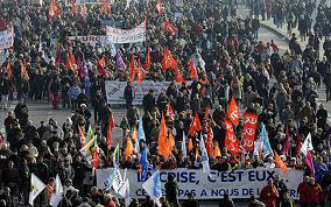Our principal input will be to the Gaz Service organization which, each year, replaces another component in our ageing boiler. This year it has diagnosed a build-up of limestone which is responsible for the pression très faible and will cost us 350 euros to put right. Hot water being (almost) as important to us as chilled rosé, we have signed bon pour accord and are anxious for the work to proceed. But when?
C’est Pentecôte.
But that’s on Sunday. Can you do it Monday?
Monday is Pentecost Monday.
Oh, ok. Tuesday?
Tuesday is the day of return from Pentecost Monday.
Bien sûr. Silly me. So Wednesday then?
Je vous rappel. I will call you.
Maybe they will. This is, after all, Provence where there is no known word for urgent. It is precisely because of this lackadaisical approach to time-keeping, scheduling and priorities that we love it.
Except when we have no hot water for another week.
If I were a Daily Mail reader, and a distressing number of copies of that appalling rag are sold in this region, I would be drawing parallels between this experience and the fall into recession. I would be ranting on about two hour lunches and socialism and strikes and Hollande’s cronies and all the other stereotypical problems of la vie française.
But I am not, because this culture and this way of life is what I signed up for when we bought our small village house in the Gard.
In fact, the most distressing element of our arrival in France was the loss of my iPhone somewhere in Beaune on the journey south. I am discovering that I can actually live without hot water on tap, but not without my portable.
There may, however, be an advantage even in this. With an episode Cevenole (thunderstorms and heavy rain), with no texts or tweets arriving, I can focus on what I came here to do: write.
Once this blog is finished in the next five minutes, I will extract from the hard drive the thousands of words of my fiction, and get down to some serious work.
Or maybe not.
After all, it is Pentecost. And we have plenty of chilled rosé in the fridge.
Today's listening: Stravinsky on France Musique, a radio station which has introduced too much spoken word over the years, but is still a marvellous French institution.
A reminder for new readers: As you will know, the original Lettres d'Uzès were sent by Jean Racine during 1661 and 1662 to his friends in Paris. Racine had been sent to Uzès by his family to stay with his uncle, the Vicar-General. The hope and expectation was that, away from Paris, he would put poetry aside and embrace the priesthood. He never did, succumbing inevitably to the life of a town where “one bookseller starves as a score of traiteurs flourish”. These 21st century letters bear no resemblance to those of Racine, but are nonetheless dedicated to him - with respect, admiration and a thousand apologies.






 RSS Feed
RSS Feed